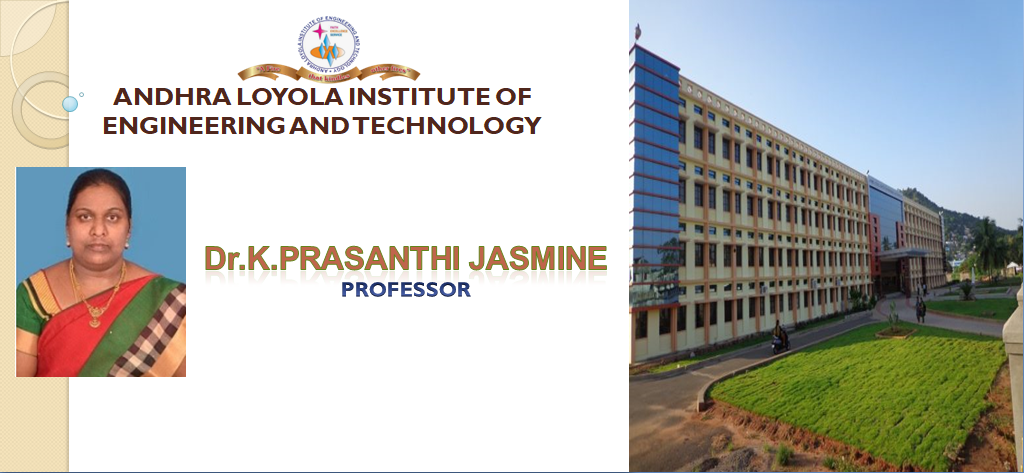ANDHRA LOYOLA INSTITUTE OF ENGINEERING AND TECHNOLOGY
(Approved by AICTE, , Affiliated to JNTUK, Kakinada & Accredited by NAAC)
Department of Electronics and Communication Engineering
Vision
The department of ECE strives to cultivate a generation of self sustained engineers who embody innovation, excellence and social responsibility.
Mission
M1. Commitment to well-structured and quality-oriented programs that align with industry standards and practices and to carry out research in collaboration with research organizations and Industry .
M2. Nurturing the spirit of innovation and creativity, develop algorithms and systems, for communication engineering.
M3. Equipping with skills to become lifelong contributors to their profession and society.
Program Outcomes (POs)
1. Engineering Knowledge : Apply the knowledge of mathematics, science, engineering fundamentals and an engineering
specialization to the solution of complex engineering problems.
2. Problem Analysis : Identify, formulate, review research literature, and analyze complex engineering problems reaching
substantiated conclusions using first principles of mathematics,natural sciences and Engineering sciences.
3. Design/Development of solutions : Design solutions for complex engineering problems and design system components
or processes that meet the specified needs with appropriate consideration for the public health and safety, and the cultural,
societal, and environmental considerations.
4. Conduct investigations of complex problems : Use research-based knowledge and research methods including design
of experiments, analysis and interpretation of data, and synthesis of the information to provide valid conclusions.
5. Modern tool usage : Create, select, and apply appropriate techniques, resources, and modern engineering and IT tools
including prediction and modeling to complex engineering activities with an understanding of the limitations.
6. The engineer and society : Apply reasoning informed by the contextual knowledge to assess societal, health, safety,
legal and cultural issues and the consequent responsibilities relevant to the professional engineering practice.
7. Environment and sustainability : Understand the impact of the professional engineering solutions in societal and
environmental contexts, and demonstrate the knowledge of and need for sustainable development.
8. Ethics : Apply ethical principles and commit to professional ethics and responsibilities and norms of the engineering practice.
9. Individual and team work : Function effectively as an individual and as a member or leader in diverse teams, and in
multidisciplinary settings.
10. Communication : Communicate effectively on complex engineering activities with the engineering community and with
society at large, such as, being able to comprehend and write effective reports and design documentation, make effective
presentations, and give and receive clear instructions.
11. Project management and finance : Demonstrate knowledge and understanding of the engineering management principles
and apply these to one's own work, as a member and leader in a team, to manage projects and in multidisciplinary environments.
12. Life-long learning : Recognize the need for and have the preparation and ability to engage in independent and lifelong
learning in the broadest context of technological change.
Program Educational Objectives (PEOs)
PEO - I
Build a strong foundation in the fundamentals of electronics and communication engineering, with focus on interdisciplinary knowledge.
PEO - II
Gain hands-on experience in the use of modern tools and techniques,including simulation, modeling, and data analysis.
PEO - III
Demonstrate the ability to solve complex problems creatively and innovatively embedded with leadership and ethical behavior.
Program Specific Outcomes (PSOs)
PSO - I
Develop Systems and Algorithms in the fields of VLSI, Communication, Signal Processing and Embedded Systems for contemporary needs.
PSO - II
Demonstrate competence in the areas of Communication Systems through effective higher education and successful career.


No comments:
Post a Comment